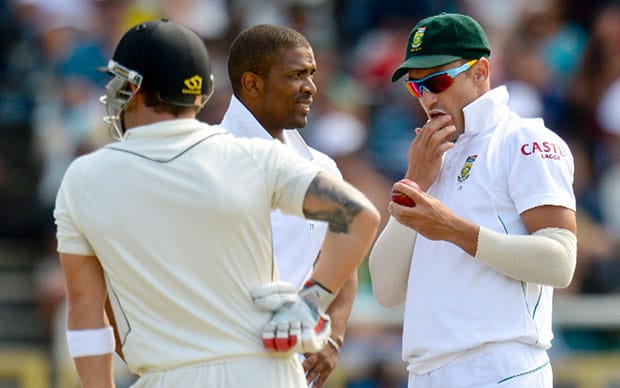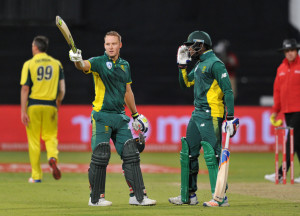Faf du Plessis questions the ICC’s ball-tampering ruling, dismissing chewing gum or mints as foreign objects.
Are there various degrees of ball-tampering?
The uproar surrounding the sandpaper ball-tampering incident in South Africa involving former Australia captain Steve Smith, former vice-captain David Warner and opening batsman Cameron Bancroft, has reopened the debate about previous cases.
ALSO READ: Wrong ‘c’ in front of Warner’s name
Du Plessis has been outspoken regarding the ICC’s new set of rules, which has seen many label the Proteas skipper as a hypocrite considering he was found guilty of ball-tampering twice in the past, as a player in October 2013 for the use of a zipper against Pakistan and as a captain in December 2016 against the Aussies in the infamous ‘mintgate scandal’.
The incident at Newlands in March has forced the ICC to take action by implementing harsher punishments for ball-tampering.
ALSO READ: Cheating players to be hit harder
Du Plessis spoke about the rulings in his departure press conference ahead of the Sri Lanka tour.
He addressed the matter again in Sri Lanka a day before the Proteas’ warm-up match which started on Saturday.
‘I think it’s important to say that I’m not clear yet on that matter [of tampering],’ Du Plessis said.
‘The ICC has made the penalties a lot more strict, but they still haven’t said what is allowed and what isn’t allowed. Is chewing gum allowed? Is it not? Are you allowed mints in your mouth?
‘As Hashim Amla said, he likes putting sweets in his mouth when he spends a long time in the field, so there’s nothing wrong with it.
‘For me, I need clarity still,’ he added. ‘I’m looking forward to speaking to the umpires before the game to make sure there’s clarity. I’m sure that Dinesh would as well.
‘We know now that the penalties are much harsher. So what we do with the ball now – as we’ve seen with Australia – things like that, the penalties are going to be much harsher. We expect that we will see less of that in the game.’





